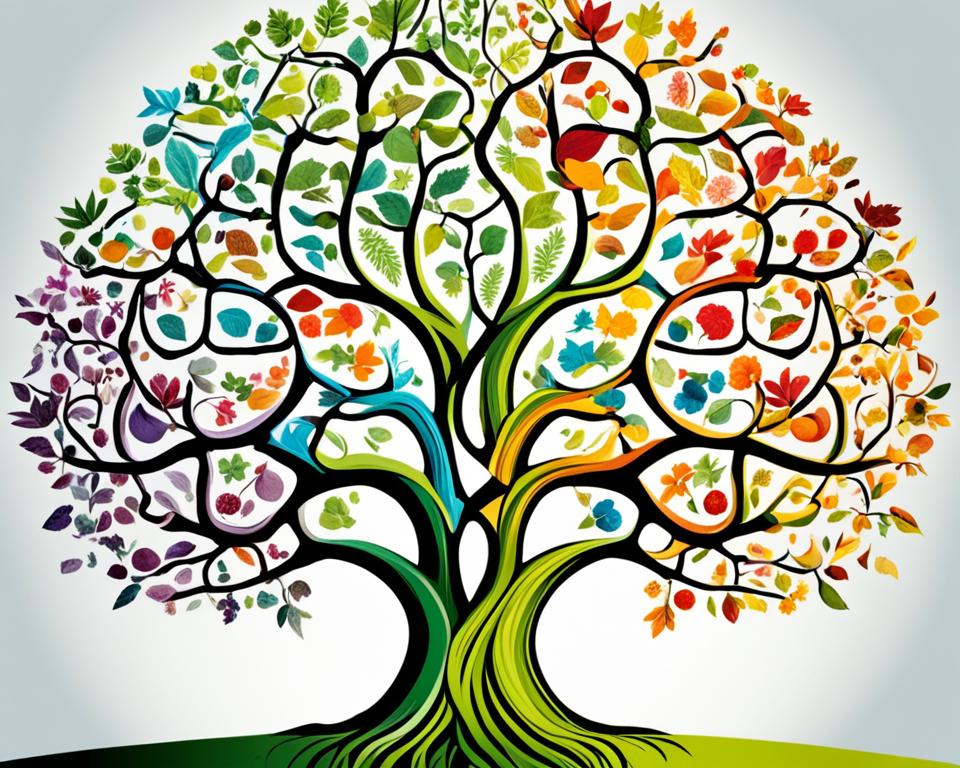Understanding how to communicate with a nonverbal autistic child is a challenge many parents, caregivers,…

Does Autism Fade? Unpacking The Possibilities
The dialogue surrounding Autism Spectrum Disorder (ASD) often brings up questions about its longevity and permanence. Common queries such as “can autism go away?” or “can autism be cured?” surface in discussions amongst caregivers, educators, and healthcare professionals alike. With the increase of autism diagnoses, particularly noted in Australia, there’s a growing debate about the reasons behind these numbers. Are they reflective of a real uptick in ASD prevalence, or might they point towards changes in societal understanding or even financial motivations?
Amidst these conversations, the concept of autism permanence gains attention. Experts in the field consistently acknowledge that autism does not simply vanish over time. Rather than promoting a misguided aim to ‘cure’ autism, there is an advancing movement towards accepting and supporting the neurodiversity that individuals with ASD contribute to the fabric of society. This shift also brings to light the significance of seeing autism not through a lens of deficits but appreciating the unique strengths and perspectives individuals on the spectrum add to our communities.
Understanding Autism Spectrum Disorder and Its Longevity
Autism Spectrum Disorder (ASD) presents a complex narrative in the tapestry of human diversity. With rising interest in the concepts of neurodiversity, understanding what ASD entails has become paramount. Neurodiversity recognizes and appreciates the inherent differences in brain functioning as a normal and valuable part of human variety.
Exploring the Neurodiversity Perspective
The neurodiversity movement expands our comprehension of conditions like ASD. It posits that autism should not be seen through a lens of defectiveness needing correction but rather as a distinct expression of the human condition. This perspective has shifted the focus from asking “can autism be cured” to how individuals with autism can thrive with societal support. In essence, neurodiversity celebrates variation while debunking the misbelief that autism is a temporary affliction.
Myths vs. Medical Understanding of Autism
Societally, myths about the reversal or curing of autism are still prevalent. However, medical experts concur that autism is a lifelong condition. The question “is autism reversible” is answered not with attempts to eliminate the condition, but with strategies and therapies for autism designed to support individuals. These therapeutic approaches aim to maximize potential and enhance quality of life, rather than futilely seeking to ‘reverse’ autism.
- Therapies tailored to individual needs are key in providing support. These could range from behavioral interventions to speech and occupational therapy, all acknowledging that can autism be treated does not equate to can autism be cured.
- The evolution of the medical landscape has consolidated understanding under the term ASD, erasing the separation of conditions like Asperger’s syndrome and underscoring the spectrum’s permanence.
- Educational and communicative resources are paramount in managing autism, contrasting the outdated idea that can autism be reversed is an achievable or even desirable goal.
Ultimately, the progression in both societal and medical views on autism challenges past prejudices and embraces a future where individuals on the spectrum are supported through evidence-based therapies and a community that values their neurological differences.
Can autism go away? Analyzing Changes Over Time
When exploring the full expanse of Autism Spectrum Disorder (ASD), an essential question that surfaces is: can autism be healed or does it remain as a lifelong companion? The reality anchors to the latter—autism is a lifelong condition. Yet, individuals may experience a spectrum of developmental milestones and progress given the wide array of options for autism treatment. From behavioral therapy to educational interventions and lifestyle modifications, these strategies are designed not to expunge ASD but to hone skills that can improve quality of life. It’s important to clarify that while no natural remedies for autism promise a cure, they can contribute to a holistic approach that supports managing symptoms and enhancing daily functioning.
Assessing the Potential for Developmental Progress
Despite an immutable diagnosis, some individuals with autism can attain what’s termed as “optimal outcome,” arriving at a point where the core symptoms lessen in intensity or frequency to the extent that they might not manifest overtly, although support and coping strategies continue to play a role. It’s a misconception, however, to interpret these instances as the erasure of autism. Rather, they underscore the significant strides possible in adapting to and managing the complexities of the condition. To well-meaningly ask, “Is there a cure for autism?” is to misunderstand the nature of the spectrum; it’s more constructive to focus on continued growth and adaptation.
Interpreting Diagnostic Shifts and Societal Awareness
The manner in which autism is diagnosed and discussed has evolved substantially, largely due to enhanced societal awareness and scientific insights. These diagnostic shifts, while reflective of a deeper comprehension of the spectrum, can influence both the perception of autism and its identification within the community. Skeptics point to the rise in diagnoses and posit that there could be motivations tied to societal and financial incentives. Such critical views necessitate a careful balance against the reality of refined diagnostic criteria and increased awareness that facilitate recognition especially in less recognized groups. Societal awareness is pivotal, forming the linchpin for an inclusive society that embraces neurodiversity and acknowledges that while the question, “Can autism be healed?” is complex, our collective support can create environments for individuals with ASD to thrive.
FAQs
Can autism go away?
Autism is a lifelong condition and does not go away. While the symptoms may change and individuals can learn to manage and adapt to them, autism itself is considered a permanent aspect of a person’s identity.
Is autism reversible or can it be cured?
Currently, autism is not considered reversible and there is no known cure. Instead, the focus is on therapies and interventions that can help individuals live fulfilling lives and manage the condition’s challenges.
Are there treatments available for autism?
Yes, there are a variety of treatments aimed at improving communication, social skills, and behavior. These can include behavioral therapies, educational support, and lifestyle adaptations catered to the individual’s needs.
Can the symptoms of autism be treated?
Yes, various therapies and strategies can be employed to treat the symptoms of autism. These aim to support the individual in developing skills and coping mechanisms that aid in daily living.
What does the neurodiversity perspective say about autism?
The neurodiversity perspective regards autism as a natural variation in the human brain and not as a disorder that needs to be cured. This view promotes acceptance and the provision of support for autistic individuals rather than trying to ‘fix’ them.
How have myths about autism been debunked by medical understanding?
Medical understanding has revealed that autism is a complex condition that falls on a spectrum and is lifelong. This has debunked myths that autism can be outgrown or is a uniform condition with a one-size-fits-all treatment.
Is there a one-size-fits-all approach to managing autism?
No, each individual on the autism spectrum is unique, and therefore, managing autism necessitates personalized approaches tailored to the individual’s needs and strengths.
How does societal awareness affect autism diagnosis?
Growing societal awareness and better understanding of autism have led to improved identification and support for individuals, especially among groups that were previously underdiagnosed such as women and girls.
Are there natural remedies for autism?
While no natural remedies can cure autism, some may help manage certain symptoms or improve overall well-being. However, any approach should be discussed with a healthcare professional to ensure safety and effectiveness.
Why has there been an increase in autism diagnoses?
The increase in autism diagnoses is attributed to better recognition, wider diagnostic criteria, and increased awareness rather than an actual increase in the condition itself. Some speculate that financial incentives or societal changes may play a role, but these claims are contentious and require careful consideration against evidence-based assessments.



This Post Has 0 Comments